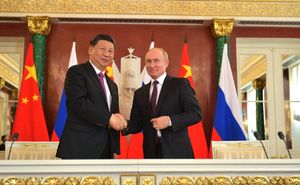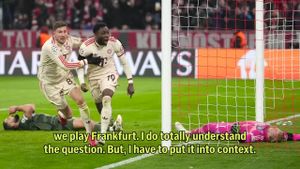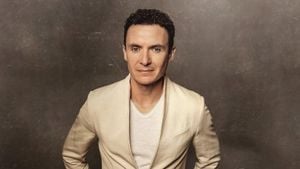Ukrainian President Volodymyr Zelensky has stated his willingness to resign if it would guarantee Ukraine’s entry to NATO, marking a significant shift in his administration’s approach amid the enduring conflict with Russia. During recent remarks made at a summit commemorated around the third anniversary of Russia's invasion of Ukraine, Zelensky hinted at drastic measures to secure his country’s future security.
"We can exchange this for NATO. Under these conditions, immediately," he asserted, referencing the notion of resigning as part of negotiations toward peace. This statement was made during discussions attended by prominent international leaders, underscoring the gravity of the situation Ukraine faces and the desperate steps it might take to achieve lasting security guarantees.
The NATO membership proposition is not only about military alliances but also addresses the core of Ukraine's sovereignty and security needs. Zelensky emphasized the importance of security guarantees for peace, saying, "The security guarantees are key to the peace we aspire to." He suggested the need for gradual steps to build trust during negotiations, hinting at possibilities such as prisoner exchanges to facilitate dialogue.
Adding complexity to the discourse, former U.S. President Donald Trump, who is pushing for Zelensky to hold elections as part of any peace agreement, coined controversial remarks during the summit. He suggested Zelensky was acting as the "dictator without elections," insisting the absence of democratic processes impeded progress toward peace, echoing sentiments of undermining Ukraine's current government.
Turkish President Recep Tayyip Erdogan joined the chorus for negotiations, emphasizing the necessity for both sides to be fairly represented, stating, "Both sides must be represented fairly" during his commitments to host future discussions. This entreaty reflects Turkey’s continued interest as both mediator and ally within the geopolitical tensions surrounding Ukraine.
European leaders gathered around Zelensky reaffirmed their support, with EU leaders like Ursula von der Leyen highlighting the urgency of assistance. "Ukraine can decide when peace negotiations begin," asserted European Council President António Costa, reinforcing the notion of Ukrainian agency at the core of negotiations—a sentiment echoed throughout the summit.
Canadian Prime Minister Justin Trudeau and multiple leaders outlined the pressing issues of military support and economic sanctions against Russia. This rallying cry emphasizes the collective aim of solidifying Ukraine's defenses against the Russian aggression, as many leaders declare their unwavering commitment to uphold Ukraine’s territorial integrity.
The discussions coincided with Zelensky’s memories of soldiers lost during the conflict, raising poignant reminders of the human cost of war. Following the opening speeches, Zelensky and other leaders paid tribute at the Maidan Square—an emblematic site for Ukrainian independence—acknowledging the historical resistance against Russian maneuvering.
The strategic moves made by Zelensky could reshape the diplomatic map of Europe defined by recent conflicts and tribute to resilience. Zelensky’s willingness to make untenable sacrifices like resignation to secure NATO membership raises questions about the lengths leaders are prepared to go to secure peace.
Mainstream media reports detail not only the public statements made but also behind-the-scenes discussions focusing on military support for Ukraine, including discussions of potential weapons packages to bolster its defenses. This aspect highlights the pivotal role of international involvement to provide not just verbal support but tangible security enhancements.
Addressing fundamental concerns, Zelensky remarked on Russia’s assertive military presence and the looming challenge of negotiating with Moscow, which seeks to consolidate its control over previously occupied Ukrainian territories. His government remains adamant about the unclouded importance of securing peace and ensuring the viability of Ukraine’s statehood.
The historical and political rivalries are increasingly visible, as the Kremlin reacts amid Ukraine's intensified pursuit of NATO membership, framing the diplomatic crisis as no mere territorial dispute but as sovereign rights and national identity on the line. No matter how future negotiations develop, the interplay between Ukraine’s aspirations and external pressures presents both challenges and opportunities.
Participants of the Kiev summit collectively marked their intent to advocate fiercely for Ukraine’s right to self-determination. The clash of narratives between Moscow and Kiev, exacerbated by Trump's assertions and Zelensky's counter-narratives, serves as the stage for potentially groundbreaking negotiations which, if successful, may redefine Eastern European alliances for decades to come.



